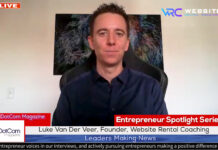One regular question which venture capitalist focused on SaaS startups get borders around the minimum requirements that qualifies a business for pre-seed funding.
It is not unusual these days to find investors who invest prematurely in startups that have not really established a direction. Such businesses may have a name and a logo but have not really tested or developed their ideas. This trend is currently causing a shift for VCs from growth stage investing to early stage start-ups.
While this development favours founders somewhat it has deepened competition and most noticeably, it has produced some unrealistic valuations in recent times.
To be on the safe side, potential founders seeking to launch based on the knowledge of the shift currently being experienced by startups should understand what prompts pre/seed stage venture capital firms to release funds.
What prompts VCs?
Founders should pre-evaluate themselves first because VCs scrutinize founders before any other consideration. A founder’s values, and perspectives on specific areas of the tech ecosystem must be impressionable to VCs. Such perspectives and ideas should stand out, be tangible and realistic to VCs. No matter the stage of the idea, it should be succinctly and convincingly expressed.
The trick is for founders to articulate their vision well enough to show how those ideas can be transformed to a value adding company. The timeframe is inconsequential so long as the process is explicit. What is the current stage? What is the next move and how will the business scale from level one to level two? All these questions must be convincingly answered. While expressing your vision as a founder, resistance points, expected obstacles, visualized growth and impact must all be addressed.
Once VCs are convinced and believe in the vision of founders the next stage will likely involve scrutinizing founders. This scrutiny covers past experience with startups, network validation etc. Network validation is particularly essential for first time founders because VCs would love to find people who can vouch for founders.
Convincing VCs on a vision is one thing, demonstrating capacity to execute this vision is another. VCs will need to be convinced that founders have the capacity to execute the visions articulated. This is why it is advantageous for founders to have people who have demonstrated this capacity on their team. It is easier for founders to convince VCs when people who have demonstrated capacity in the past are available to vouch for them. When founders posses a network that is considered to be trustworthy in addition to industry experience, expertise and other quantitative metrics they easily convince VCs.
Craft a Compelling Startup story
Compelling storytelling remains the most vital quality founders can use to secure early-stage funding. There must be a story to support your product and sales team and this should be a relatable story. VCs mostly evaluate the stories of founders from the perspective of potential customers and other investors. The ability of a founder to convince customers, investors, advisers and even employees on their vision will likely determine how convincing they will be to VCs. It determines if they can demonstrate the capacity to deliver on their word.
Storytelling goes beyond the products that potential founders are looking to sell. It incorporates founder’s life experience and immerses this into the products and services and the viability of the business.
Craft a compelling story that includes your experience, business vision, and network validation and you are on your way to receiving your much needed early stage venture capital.
As originally reported in (https://news.crunchbase.com/venture/pre-seed-funding-vcs-startups-marc-schroder-mgv/)



















